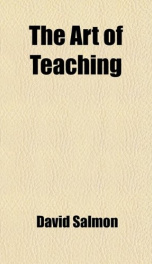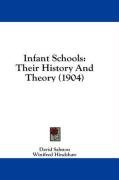the art of teaching

Purchase of this book includes free trial access to www.million-books.com where you can read more than a million books for free. This is an OCR edition with typos. Excerpt from book: ORAL QUESTIONINGi A Bad questioner is a bad teacher. He may be a good lecturer, but the lecture differs from the lesson. Both the lee- Teaching turer and the teacher strive to secure attention by and lecturing the presentation of interesting facts or the interesting presentation of facts ; but the lecturer looks upon his audience as a whole, while the teacher looks upon his class as units. The lecturer does not undertake to make all his hearers understand or to make any of them remember, but the teacher considers it to be his duty to make each pupil both understand and remember. The lecturer asks no questions ; but if the teacher copies his example too closely, he succeeds only in giving a lecture when he meant to give a lesson. ' The teacher's subject ... is not books but mind. On the other hand, the lecturer's subject in the first instance is not mind but books. This distinction is vital, and the most important results follow. . . . Broad is the dyke and deep that cuts across between the teacher and the lecturer, dividing them by a bridgeless space. They stand on the same level; at a little distance they appear in the same field; to the ordinary eye they are engaged in the same work, with the same surroundings and the same object. But they are divided for ever in theory and in practice.' 2 The teacher asks questions : i. To show some one else what his pupils know. Aims of 2. To find out for himself what they know questioning (or do not know). 1 Some parts of this chapter are taken, without much alteration, from Longmans' Object Lessons. - Thring. 3. To ascertain whether they are following him. 4. To direct and encourage thought. 5. To recapitulate what has been taught. 6. To test how far what was intended to be taught has been learned. 7. To awaken ...
Info about the book
Author:
Series:
Unknown
ISBN:
0415365279
Rating:
4.5/5 (5)Your rating:
0/5
Languge:
English
Users who have this book
Users who want this book
What readers are saying
What do you think? Write your own comment on this book!
write a commentif you like the art of teaching try:
Do you want to exchange books? It’s EASY!
Get registered and find other users who want to give their favourite books to good hands!




